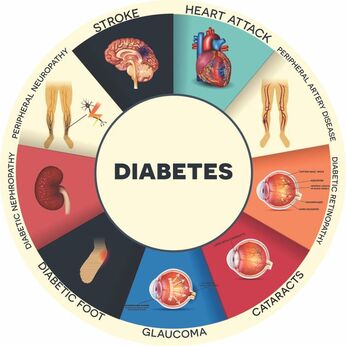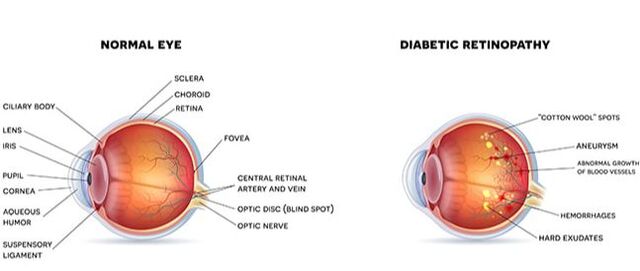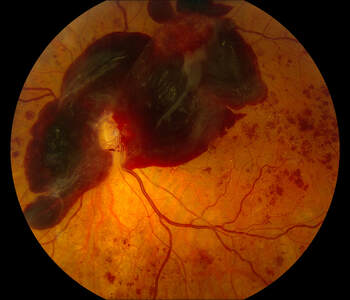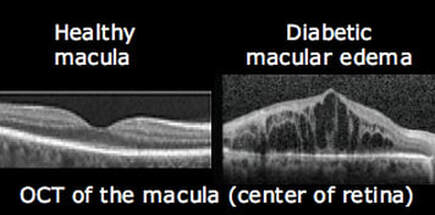Diabetic Eye Disease....What is It?

Over time without proper care and treatment, diabetes can cause damage to your eyes resulting in poor vision or even blindness. According to the CDC, roughly 90% of vision loss caused from diabetes can be prevented. However, early detection is key. It is vital for diabetics to have a yearly comprehensive eye exam so that your vision can better be protected.
Diabetic Eye Disease (DED) is a term used to describe a group of conditions that can be caused by poor control of diabetes. DED can cause complications like diabetic retinopathy, diabetic macular edema, cataracts and glaucoma. Anyone with diabetes can develop DED. Your risk of DED increases if you have conditions that are left untreated such as high blood sugar, high blood pressure, or high cholesterol. Diabetics who smoke, older in age, are of different ethnic backgrounds or pregnant also have increased risks.
Diabetic Eye Disease (DED) is a term used to describe a group of conditions that can be caused by poor control of diabetes. DED can cause complications like diabetic retinopathy, diabetic macular edema, cataracts and glaucoma. Anyone with diabetes can develop DED. Your risk of DED increases if you have conditions that are left untreated such as high blood sugar, high blood pressure, or high cholesterol. Diabetics who smoke, older in age, are of different ethnic backgrounds or pregnant also have increased risks.
Diabetic Retinopathy:
The retina is a thin layer that lines the back of each eye. Your retina is responsible for capturing light and converting it to an electrical signal which is sent to the brain allowing you to see the world. Damaged blood vessels can harm the retina causing diabetic retinopathy.
|
Diabetic Retinopathy happens when the blood vessels inside the eye swell, leak or in some cases close off completely. In early stages patients usually don’t have any symptoms. Some may notice changes in their vision, both near and far, but these changes may come and go. In late stages, the vessels in your retina start to bleed into the vitreous (gel like substance that fills your eye). When this happens, patients may notice dark floating spots or strands that look like cobwebs.
All of the red blotches you see in the photo to the right are hemorrhages caused by poor diabetic care. Sometimes, the bleeding can heal on its own but it is important to seek treatment, without treatment the condition can worsen causing more damage. Diabetic retinopathy is the most common diabetic eye disease and the leading cause of irreversible blindness. |
Diabetic Macular Edema:
The part of the retina that you use for everyday activities such as reading, driving, and seeing faces, is called your macula. Without proper treatment, diabetes can make the macula swell with fluid, this is called diabetic macular edema (DME). Overtime, this disease can lead to partial or total vision loss. DME is typically found in patients who already have signs of diabetic retinopathy.
The main symptom in DME is constant blurry or wavy vision in the central line of vision. What used to be bright may now seem faded or washed out. Some patients may even notice a change in colors. DME may only affect one eye. If this is the case you may not notice blurry vision until the disease is well advanced.
The main symptom in DME is constant blurry or wavy vision in the central line of vision. What used to be bright may now seem faded or washed out. Some patients may even notice a change in colors. DME may only affect one eye. If this is the case you may not notice blurry vision until the disease is well advanced.
Things to Remember:
It is important that ALL diabetics schedule and keep their Annual Comprehensive Eye Exam. If the doctor recommends that you return for further evaluations, it is important that you are compliant with returning appointments. If your eye care professional sees signs of diabetes in your eyes then there is a chance of the disease affecting other major organs. Your eye care professional will send letters to your primary care provider so that you receive the care that you need to help better control your diabetes.



